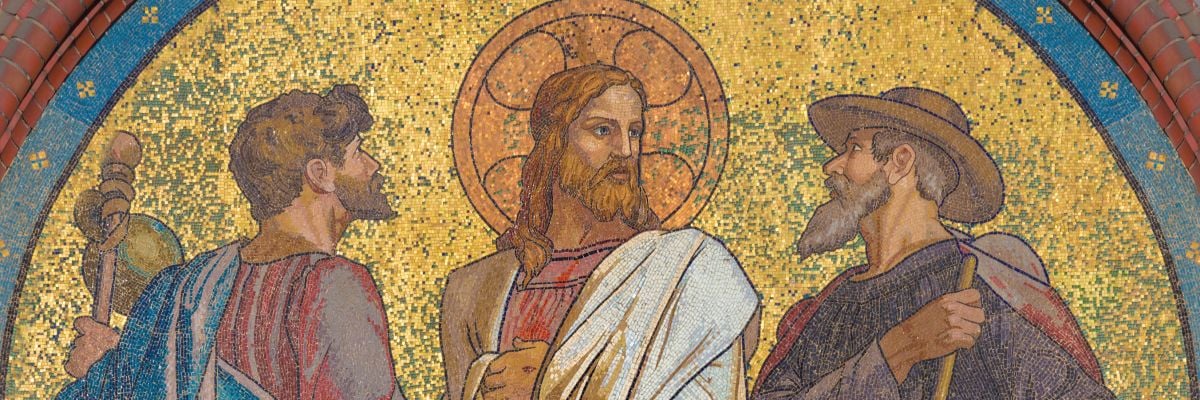
Homily for the Third Sunday of Easter, Year A
As they approached the village to which they were going,
he gave the impression that he was going on farther.
But they urged him, “Stay with us,
for it is nearly evening and the day is almost over.”
So he went in to stay with them.
And it happened that, while he was with them at table,
he took bread, said the blessing,
broke it, and gave it to them.
With that their eyes were opened and they recognized him,
but he vanished from their sight.
Then they said to each other,
“Were not our hearts burning within us
while he spoke to us on the way and opened the scriptures to us?”
So they set out at once and returned to Jerusalem
where they found gathered together
the eleven and those with them who were saying,
“The Lord has truly been raised and has appeared to Simon!”
Then the two recounted
what had taken place on the way
and how he was made known to them in the breaking of bread.-Luke 24:28-45
“Were not our hearts burning within us while he spoke to us on the way and opened the scriptures to us?”
Why do we read—or should we read, or listen to the Word of God? A number of reasons can be given, but one is the most basic and effective: because we want to stir up and increase our desire for union with Our Lord. We want our hearts to burn as we meditate on God’s word.
Burn for what? To be with him, to be united to him. Notice that after the two disciples had heard the Savior’s explanation of the scriptures they pleaded with him to stay with them and have supper. They had begun to desire his company and to show him their hospitality, which in the morality of the Bible is a privileged form of love. And like an accomplished lover, Jesus plays “hard to get” and acts as though he intends to go on farther down the road. But as we know from this lovely Gospel, he rewards them with his presence in the breaking of the bread.
In other words, reading Sacred Scripture devoutly is a kind of extended spiritual communion, an act of desire for the Lord who inspired them. This is the reason that the holy Mass begins with the scriptural lessons and instruction in their meaning—so as to purify and enlighten our hearts for the offering up and receiving of the mystical bread of life, the real presence of the Lord’s sacrifice in his body and blood.
During this time of Eucharistic famine, from which we earnestly beg God to deliver us and soon, let us turn to Scripture and do so praying for a quickening of our desire for the things of God, and most of all for the supreme gift of God: the Blessed Sacrament.
Christianity is not a “religion of the book” as Mohammed put it. The written word, even if inspired and holy, is not the same as a living encounter with the body and blood, soul and Godhead of Christ. This word is a preparation, and as we said, it serves to stir up in us a desire for union with him; but in its written form, it is not him.
Our Lord never composed anything or left any writings. He is too great and lofty for that. St. Thomas Aquinas teaches us that Our Lord did not write down his teachings because he has the power to teach us inwardly; he can move our hearts in his own sovereign way, as no one else can. So even in today’s Gospel we are not given a written account of what he said, but rather we are told about the power of a living encounter with him.
So, since it is our most basic Christian duty to worship the Holy Trinity by the Eucharist—which is a living encounter and not just a teaching—let us do what we can now to use the scriptures to increase our desire for union in soul and body with the body of the Lord. Then the bright day will dawn when we can once again gather for the breaking of the bread, the holy Mass, and we will be ready with our hearts burning within us.
Holy Church in every rite, East and West, old and new, gives us daily readings from Holy Writ. Let’s find them out and ponder them together like St. Cleopas and his companion, who were happy to be given burning hearts to match the burning heart of Jesus. This union of God with his creatures and his creatures with each other is the most beautiful thing of all the things he has made: truly beyond words.



